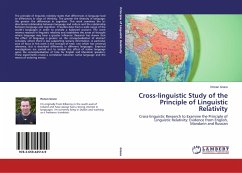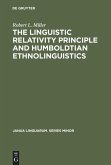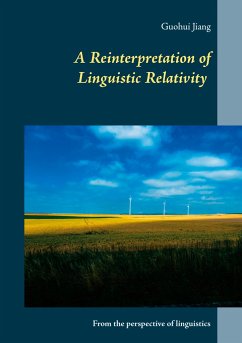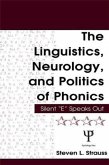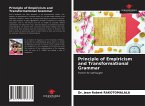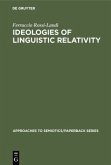The principle of linguistic relativity states that differences in language lead to differences in ways of thinking. The greater the diversity in language, the greater the differences in cognition. This work examines the bi-directional relationship between language and culture and the relationship between language and cognition. It studies data from a wide range of the world's languages in order to provide a balanced account. The work reviews research in linguistic relativity and establishes the areas of thought where language may have a greater influence. Research has shown that the effect of language is greater on the conceptualisation of abstract concepts, where there is less supporting sensory information. A particular area of focus in this work is the concept of time, one which has universal relevance, but is described differently in different languages. Empirical investigations are carried out to analyse the effect of native language upon the conceptualisation of time for English and Mandarin speakers. These experiments reveal a correlation between native language and the means of ordering events.
Bitte wählen Sie Ihr Anliegen aus.
Rechnungen
Retourenschein anfordern
Bestellstatus
Storno

